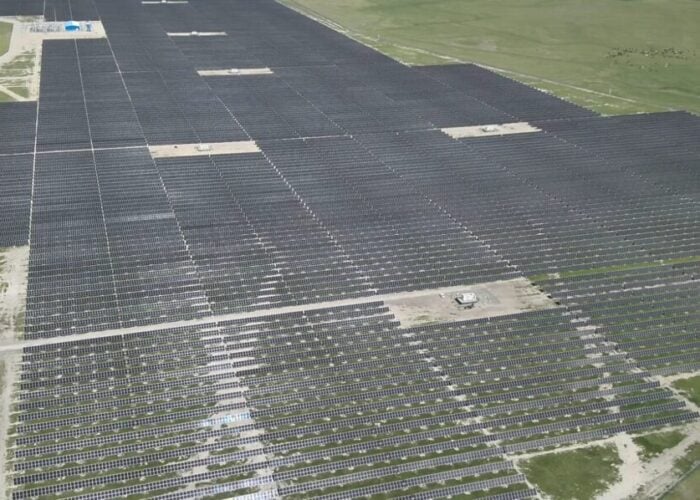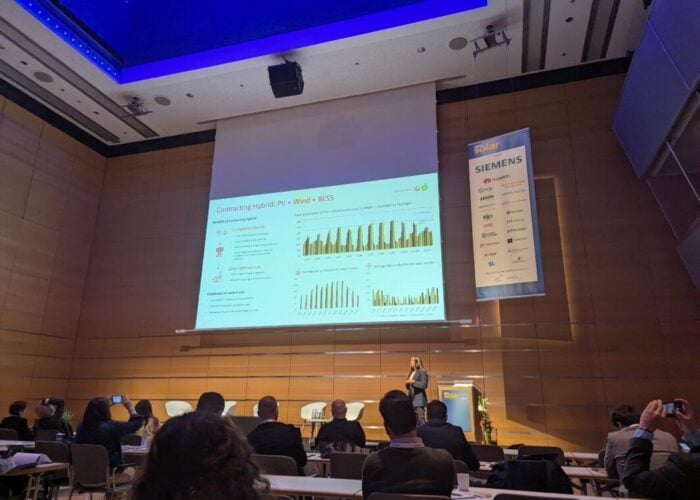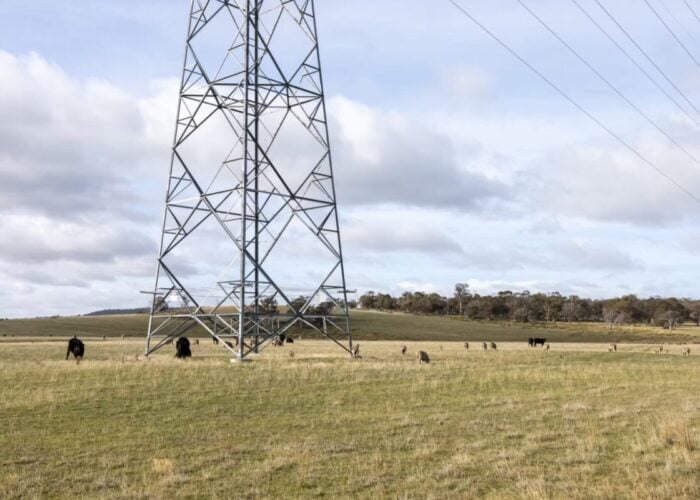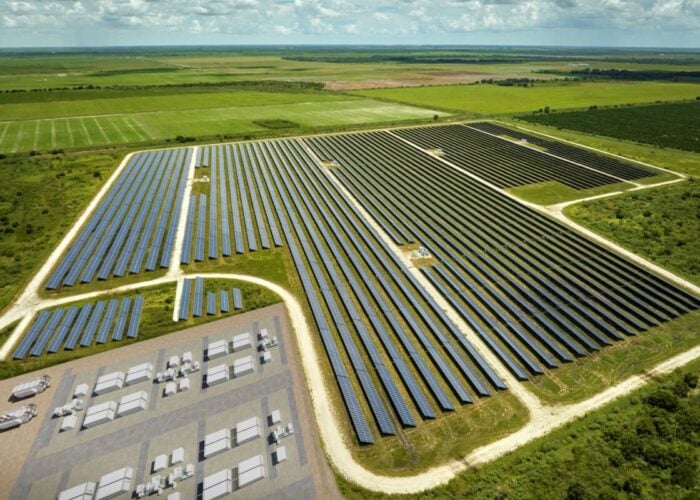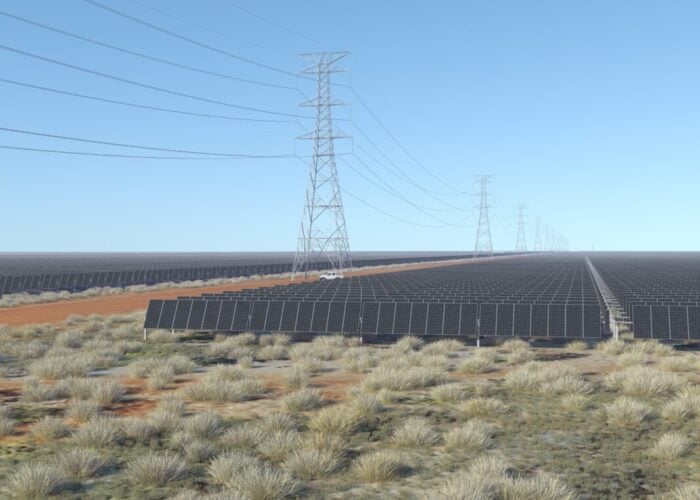
As energy markets continue to adapt and grow, energy arbitrage could overtake frequency markets as the key revenue stream for many co-located solar plus storage projects.
Speaking as part of a panel session at this week’s Large Scale Solar Europe conference, hosted by PV Tech publisher Solar Media, Aurora Energy Research principal Benjamin Collie noted that there are benefits to investors of holding solar and storage within their portfolios given the complimentary profiles.
Unlock unlimited access for 12 whole months of distinctive global analysis
Photovoltaics International is now included.
- Regular insight and analysis of the industry’s biggest developments
- In-depth interviews with the industry’s leading figures
- Unlimited digital access to the PV Tech Power journal catalogue
- Unlimited digital access to the Photovoltaics International journal catalogue
- Access to more than 1,000 technical papers
- Discounts on Solar Media’s portfolio of events, in-person and virtual
“You might have a future with really low price volatility, which could happen if you have, for example, a lot of smart charging electric vehicles on the grid,” Collie suggested. “Or if you have a lot of demand side response or other types of flexibility.
“Now that would be a good thing for solar, because it would tend to support prices at the time when there’s lots of solar production. But it would be a bad thing for batteries because it would be smaller spreads during the day, minimising your opportunities for arbitrage.”
Depending on how the markets develop, the same could prove true in the other direction, with really high deployment of solar generation in the future for example harming existing battery assets but benefitting storage, which mean wider spreads between maximum and minimum prices on any given day increasing the opportunities for arbitrage.
As such, while there are challenges to co-location of solar and storage it opens up the potential revenue streams, providing greater long-term flexibility in terms of revenue streams he noted in the Optimising a Grid Connection discussion.
While more harmonisation is still needed, ensuring flexibility through storage along with the wider adoption of ancillary services in markets around the world can help to offset the rapidly reducing renewable energy prices added Christos Georgopoulos, CEO of Inaccess, providing additional bankable revenue streams.
But there are still challenges, not least because of the great variance in services in different markets, which creates complexity for global players. With different sets of regulations and technological requirements as well as maturity, fully accessing the value possible in grid services can still pose a problem.
Ultimately, the best revenue stream for solar and storage is likely to shift from frequency and grid services in coming years as well, with energy arbitrage ultimately taking over said Felipe Hernández, managing director at FRV X & Engineering.
The panel, which was moderated by Lawrence Buckley, founder and CEO at Alta Capital, largely agreed with this assessment, with Collie noting that the value that “batteries can capture from grid services probably declines over time, and more of the value comes from energy arbitrage.
“Especially when you take into account other providers flexibility, whether that’s electric vehicles, or demand side response, or other things, getting into these sorts of markets for grid services. We’ve seen it in GB, and we’re expecting it to happen in other markets. So with that, you see the shift in value for batteries going from auxiliary services to energy arbitrage.”
Large Scale Solar Europe 2021 continues this week, with a range of sessions unpicking topics key to Europe’s flourishing solar market. For more details on the event, click here.

